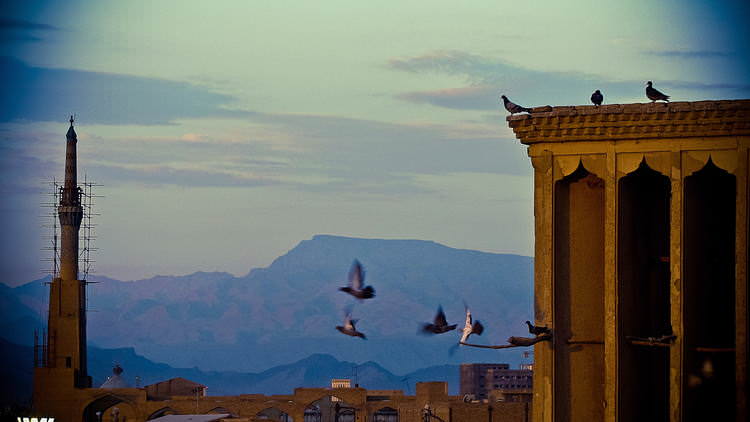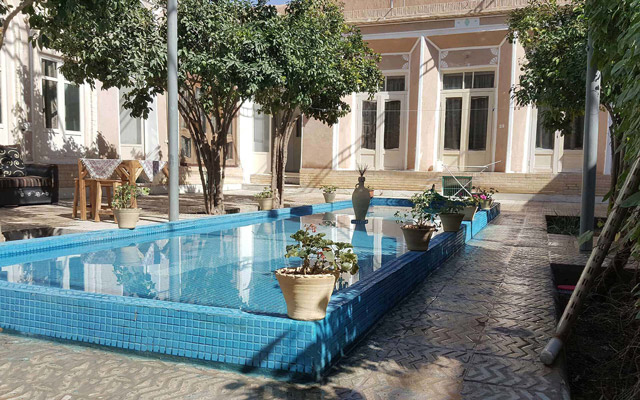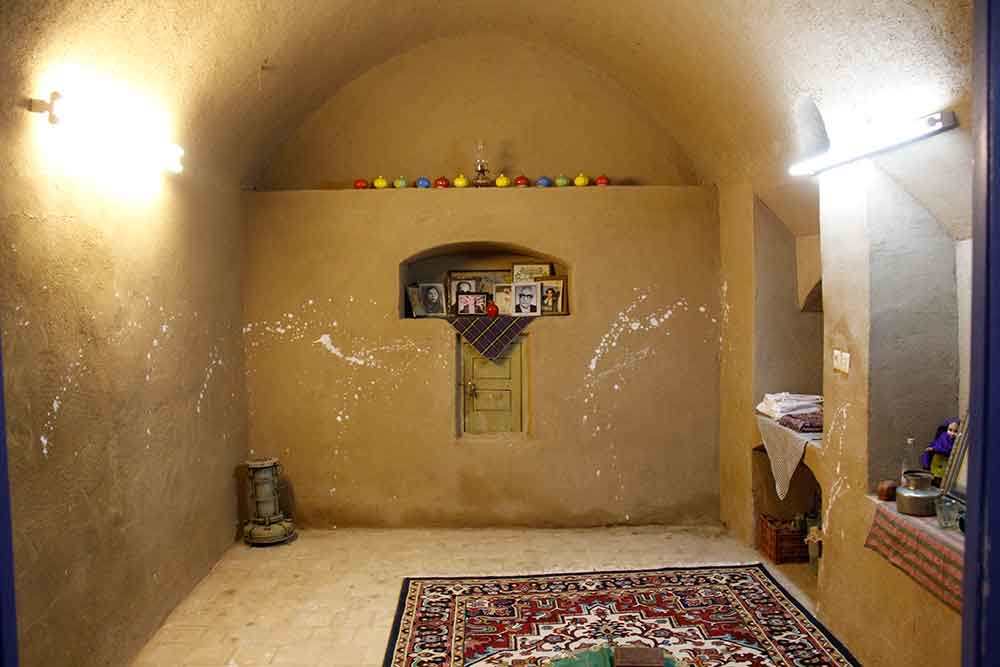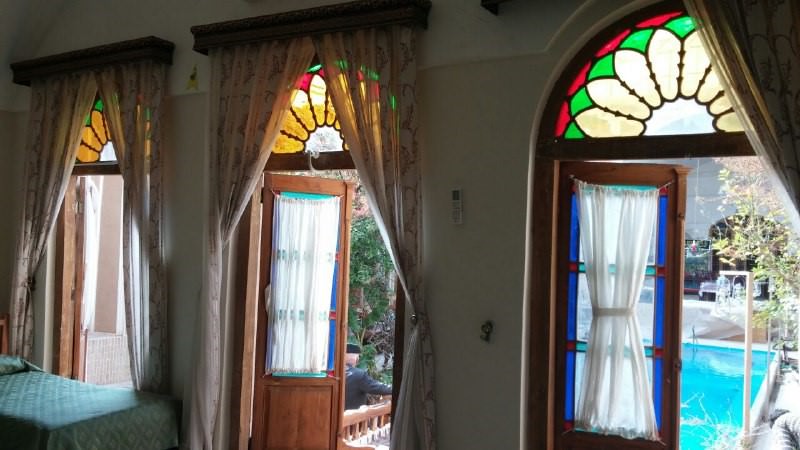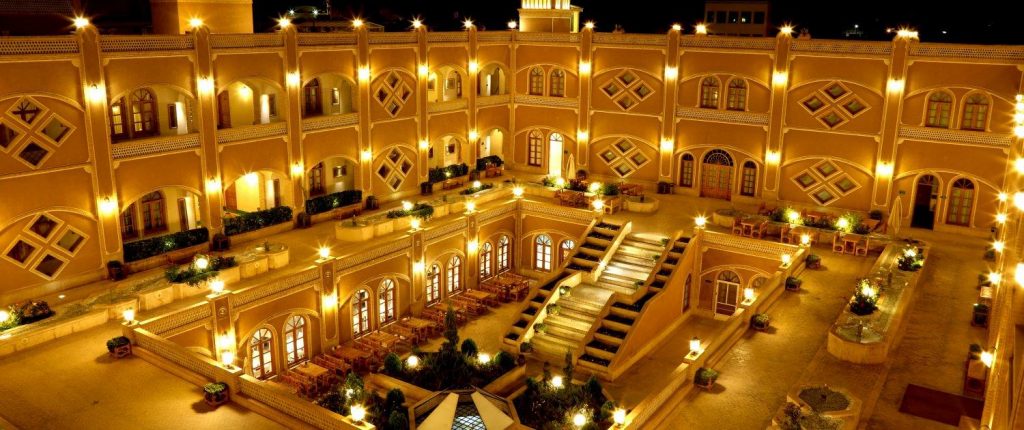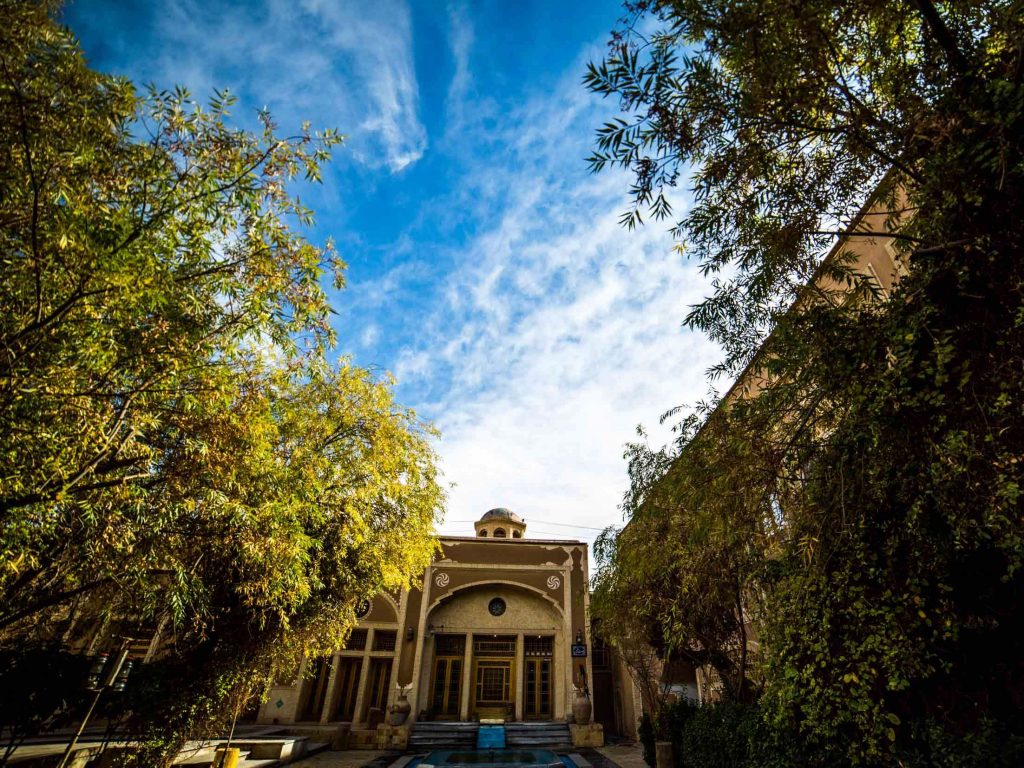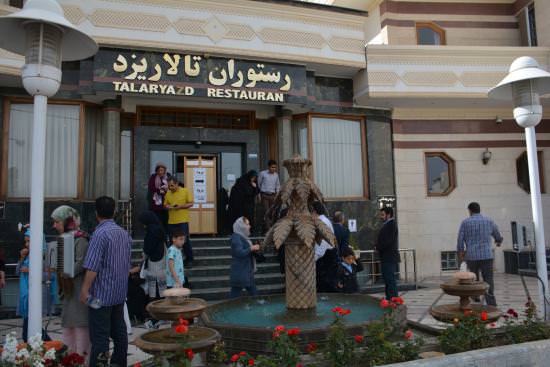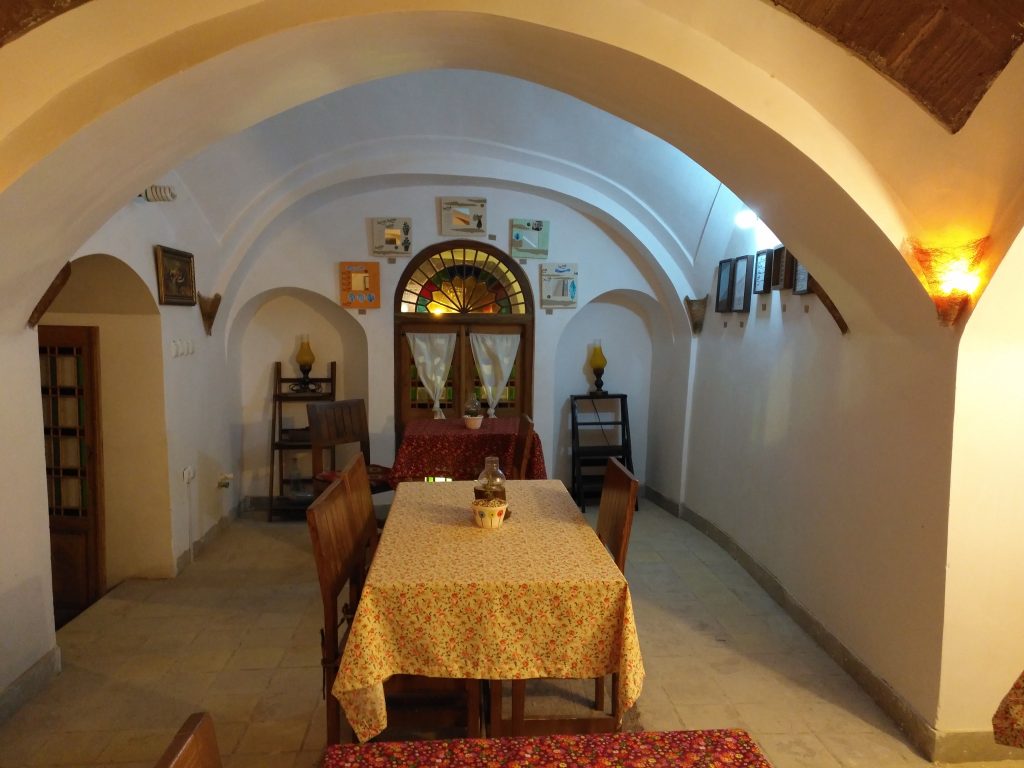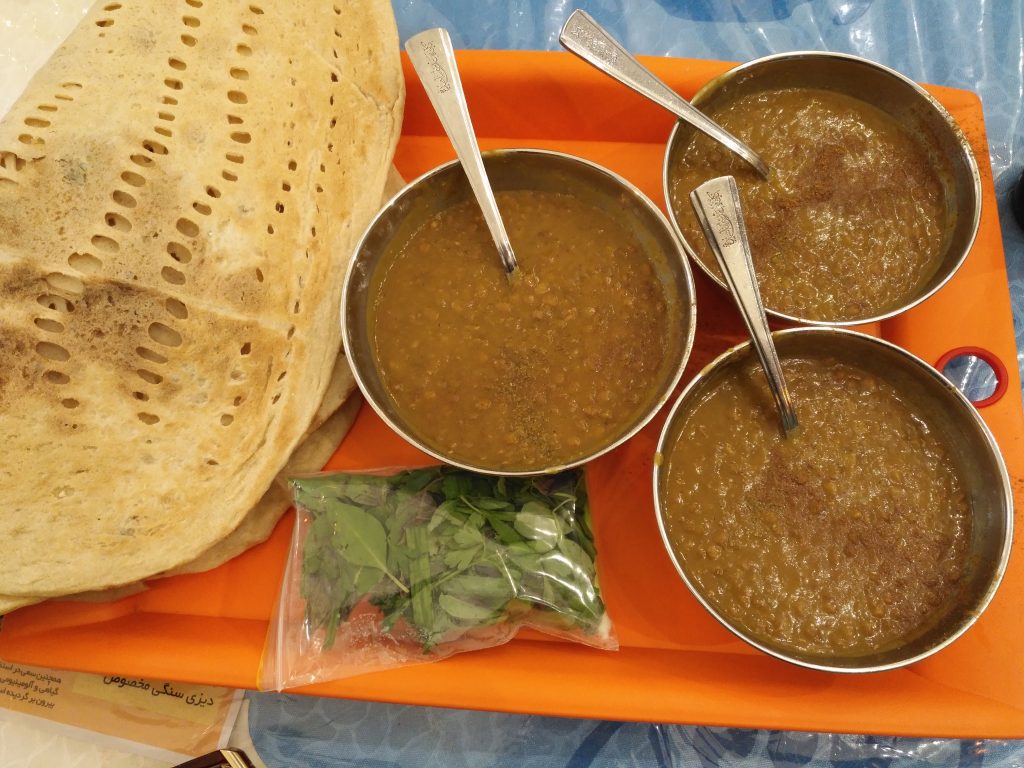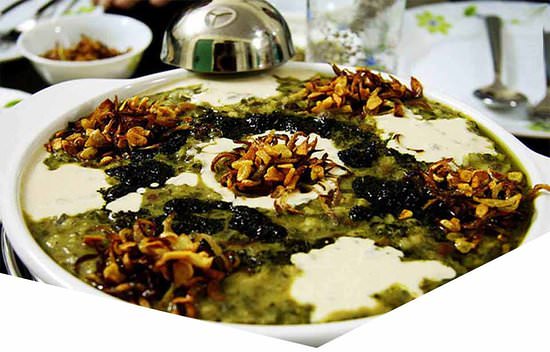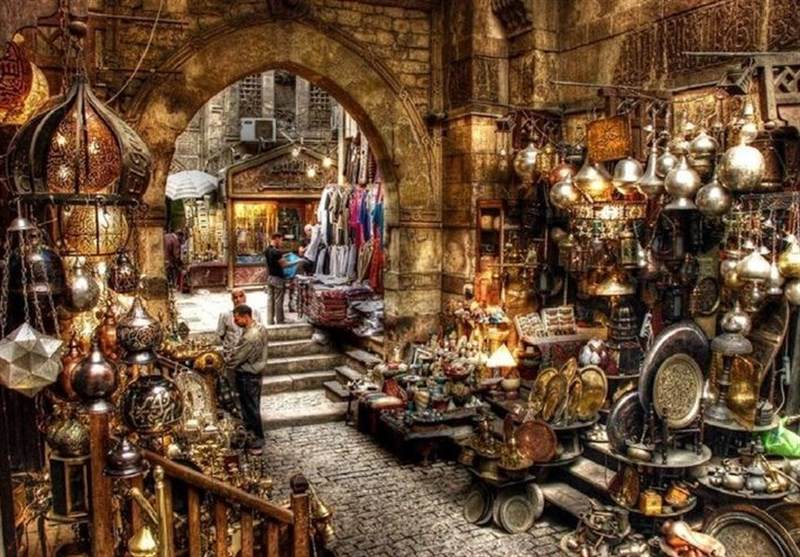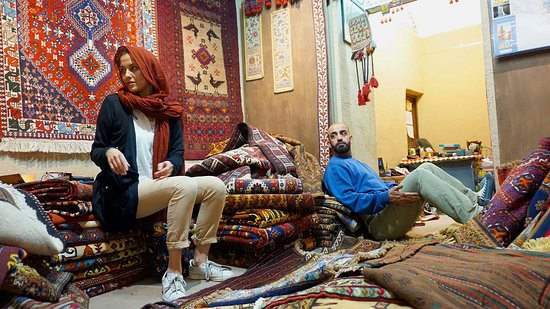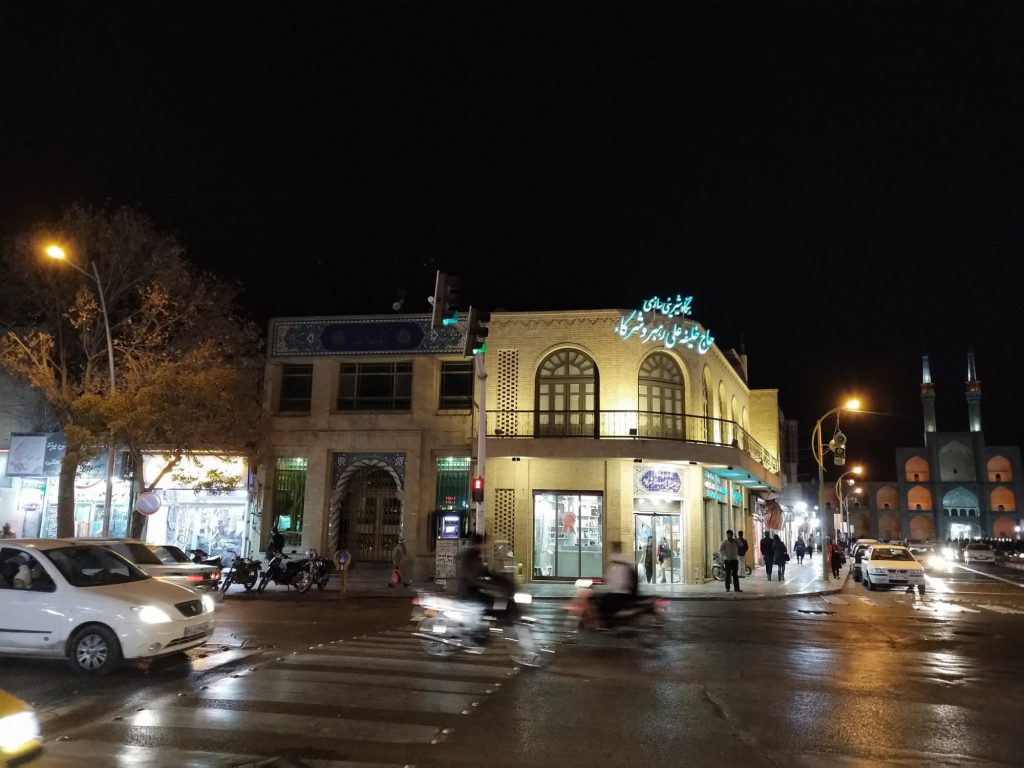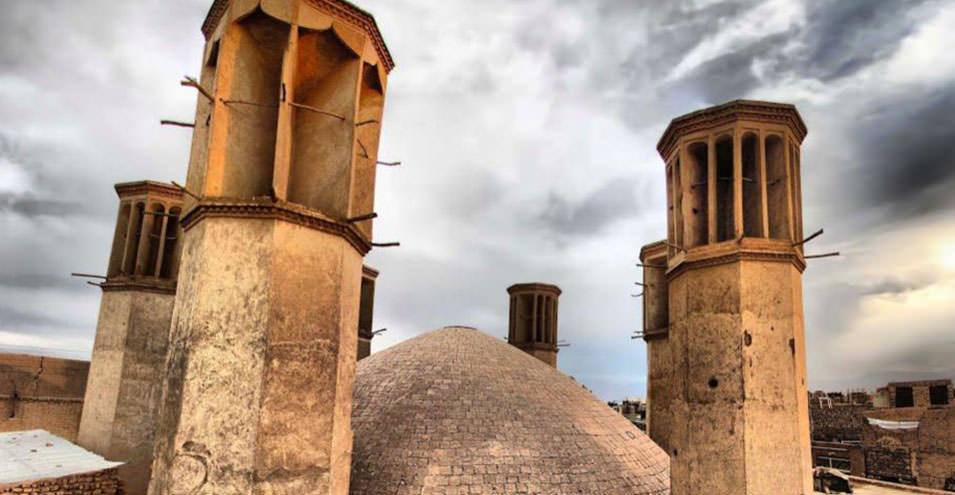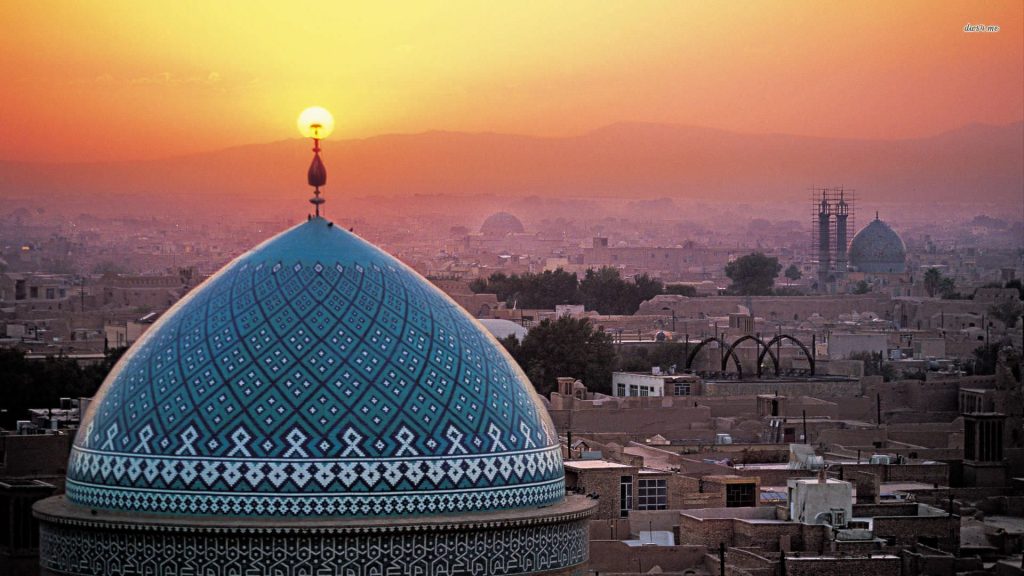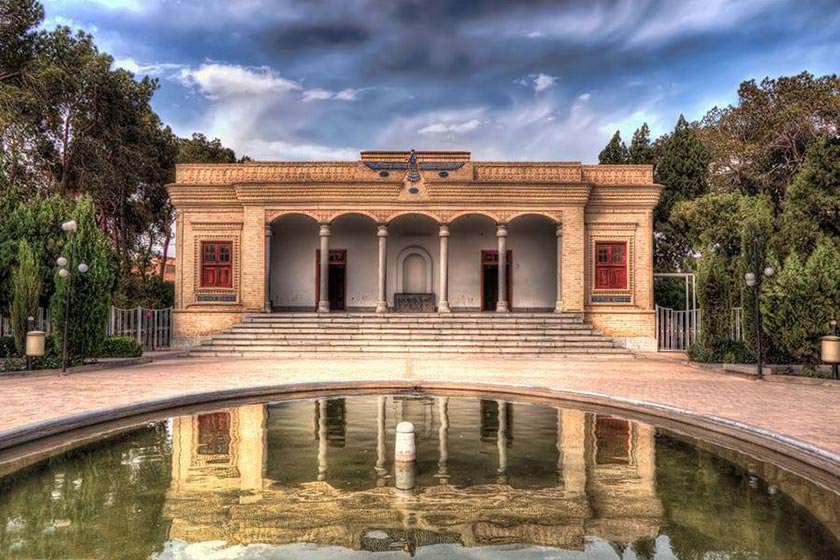Yazd is one of the rare places in the world where you can taste the still alive and dominant flavor of a civilization that has flourished for millennia. Located in terrain and more arid and forbidding than the deserts of Nevada, this oasis is still breathing and shining thanks mostly to the very unique and sophisticated technology invented by the Persian people sometime in the early first millennium BC to guarantee not only a reliable supply of water, but also a sustainable peace between the people of different areas and/or different religions.
Weather
Influenced by Mid-latitude Dry Arid (Desert) climate, Yazd has hot sunny days most of the days in a year. During June the temperature would rise to approach 40℃. During winter, however, you would experience cool days and freezing nights and should be ready for fog. The whole spring and the whole autumn would be the perfect times to enjoy the moderate weather of this city. As a reminder, it is not much recommended to travel in Iran during the second half of March (which is the period of Iranian New Year holidays) as nearly whole the country except the capital might be disturbingly crowded.
Local Transportation
Although the most of the sights of Yazd and especially those located in the old town are very easily accessible by walking, you would be able to take a taxi or bus to almost any destination with very cheap prices.
The point to take taxis is the same in the whole country; just wave your hand for a taxi and negotiate and deal with the driver for a fair price before getting on. It is highly recommended to ask your hotel to help, however. you can book Yazd hotels easily with 1stQuest.com
Where to Stay
Regardless of your budget, you would have a hard time to choose among the very various and interesting places for your residence in this city. Your options would be from very cheap and cozy hostels and eco-lodges to fancy palace-like hotels. You can find more details about Yazd hotels in 1stQuest and also book your hotel online. Here are some few top-rated ones for each budget level:
“Cheap ones”
Yazd RestUp Hostel
RestUp Hostel is actually a 17th-century house located in the middle of the old city and just close to the Jame Mosque.
You would pay 15-22 EUR for each person per night.
Read also: Exotic Hotels in Iran
Nartitee Ecolodge
If you are an eco-tourist, which means that it is important that your travel be responsible to natural areas that conserve the environment and improves the welfare of local people, eco-lodges might be your best choice to stay in. Located between Taft and Yazd, Nartitee can be reached from Yazd very easily in half an hour by buses run every 20 minutes. There is no bed but bedclothes, a sheet, a blanket and a pillow all in covered in a wrapper (chador shab) for every person.
Book Nartitee ecolodge online with 1stquest.
Kohan Hotel
Kohan Hotel is another old house with a beautiful courtyard. The rooftop view is outstanding and there is a Qanat room there to explore.
The minimum cost of staying here for a single person would be around 24 EUR per night.
“Midrange”
Dad Hotel
Dad Hotel is an 80-year old hotel serving you with all one might expect from a 4-star traditional hotel.
Book Dad hotel online with great rates at 1stQuest.
Moshir al-Mamalek Garden Hotel
Moshir al-Mamalek Garden Hotel is another 4-star hotel located in the old place of Moshir Garden remained from the Qajar Era.
Single: 73 EUR; Double: 92 EUR; Triple: 116 EUR; Four beds: 132 EUR.
Where to Eat and Drink
It would not be hard at all to find quality food with an outstanding and friendly vibe in this city. It would be up to you whether you would like your food to be served on a table or eat while seated on the ground feeling the priceless Persian carpet beneath your naked feet.
Talaryazd (Yazd Hall)
Talaryazd is most recommended if you want to eat very good quality Iranian typical dishes with fair prices.
Cafe Honar
After hours of walking in the maze of Yazd’s winding lanes, a cup of tea or coffee on the roof of Café Honar is so much recommended to refresh you watching the excellent view of the city you would have there.
Panhandeh Lentil Café
You would find your life’s most delicious lentil soup in this café located in the middle of Yazd’s traditional bazaar. The soups are usually sold out before 11:00 AM.
What to Eat and Drink
Besides some very special and tasty stews like Gheime-Nokhod, Beh-Aloo, and Ghalie Kadoo, Yazd is one of potage (Aash) capitals of the world. Among the various and plenty potages you might taste here, like Wheat Potage, Plum Potage, Verjuice Potage, Mung Bean Potage, and Pomegranate Potage, Shooli is the most popular in a way that can be considered as the flag of this province’s kitchen!
The above, however, would not be the whole story about the tastes you might experience here! You can hardly find an Iranian traveling to Yazd, missing the very tasty and fresh Qottabs; an almond-filled deep-fried Iranian cuisine pastry, prepared with flour, almonds, powdered sugar, vegetable oil, and cardamom.
Read Also: A Travelers’ Guide to Vegetarian Iranian Food
Where to Shop
Among all the big malls and small boutiques you might find in every corner of this city, three places would be most recommended if you do not want to miss to shop the things you might hardly find anywhere other than Yazd:
Yazd Traditional Bazaar
With its very amazing architecture, Yazd Bazaar would be an interesting place to wander and shop by which you would feel the pulse of this outstanding city.
Silk Road Gallery
This place would be the right choice to buy the unique handicrafts of Yazd Province. You would enjoy the various carpets and kilims being exhibited here providing nice moments and plenty of choices for your shopping.
Haj Khalifeh Rahbar
Haj Khalifeh Rahbar is among the most well-known shops of Iran to buy tasty sweets. It is a family business currently being run by the third generation.
Things to Buy
The popularity and famousness of Yazd typical souvenirs would not let you provide any excuses not to take and bring any. In addition to the carpets and Kilims which you can find in any corners of Iran with that region unique style, here are the things that cannot be presented without reminding the name of their origin, Yazd: Termeh, a hand-woven cloth, the very fine woven silk textiles called Dastmal-Yazdi, and of course the sweets.
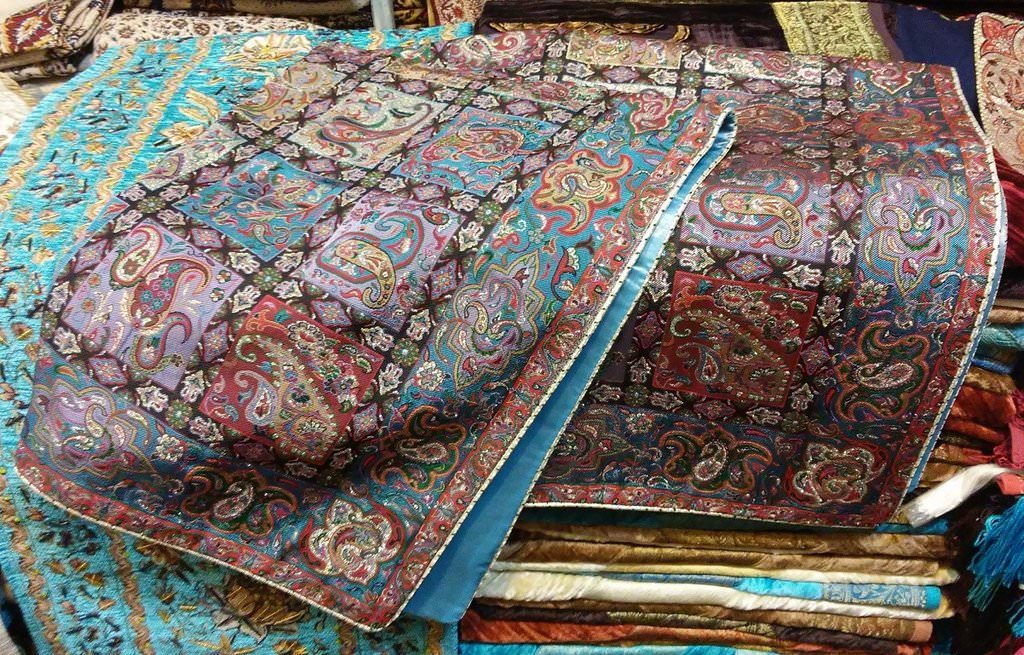
Termeh (Persian: ترمه) is a type of Iranian handwoven cloth, produced primarily in the Yazd province.
Where to Go
This arid provincial capital in central Iran would overwhelm anyone thirsty for authentic beauty. Among all attraction of this city, including the traditional districts, the Qanat system, traditional houses, bazaars, hammams, mosques, synagogues, Zoroastrian temples and the historic garden of Dolat-abad. I will try to provide very brief intros and some ideas only; the rest would be up to you to unlock the myths of this eternal civilization by yourself:
Wandering in the Winding Lanes
The traditional districts of Yazd provide the most relaxing and inspiring atmosphere to go in, explore and get lost. It is actually an ancient all-mud city with adobe roofs truly picturing the cities of poems of Hafiz and Rumi. Just put away your map and enjoy being lost in the magic maze of the enchanting lanes.
Masjed-e Jameh
Built in the 15th century, this mosque is believed to be on the site of an earlier fire temple. Like the winding lanes of the city, this building invites the visitors to enjoy wandering and getting lost; this time in the stunning and mesmerizing calligraphy and symbols on its tiles; even the symbols which can be found on Iranian buildings of 5000 BC.
Dowlat Abad Garden
Here is another typical Persian garden which are all the paradises on the earth. Built in 1750, this small pavilion once was the residence of Persian regent, Karim Khan Zand. Like mostly all buildings in the old city of Yazd, you would find a wind catcher (an indigenous form of air‐conditioning); it is big as the size represents the wealth of the building owner.
In spring and autumn, walking and relaxing n this garden would be just like being in a paradise, especially if take your time and order a cup of tea and “Cake Yazdi”!
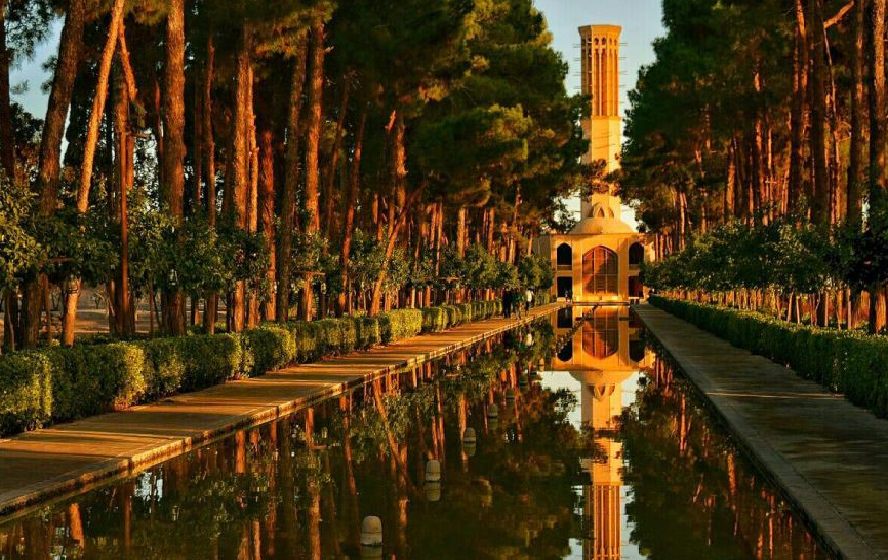
Built in 1747, the walled complex includes the country’s tallest wind catcher, orchards & fountains.
Atash Bahram Fire Temple (Atashkadeh)
Built-in 1934 with Achaemenid architecture style in brick masonry designed by Indian architects, is the place protecting an eternal flame and would bring peaceful moments for the visitors. The flame is said to have been burning since about AD 470; brought to Ardakan in 1174, then transferred to Yazd in 1474 and to its present site in 1940
Water Museum
Located in one of driest areas of the world, this city has gloriously survived for thousands of years thanks to Qanats; a very sophisticated technology for a sustainable water supply. In Yazd Water Museum you would see how this system works and what instruments and techniques have been applied in different periods of history. There are also pictures being exhibited here to demonstrate the processes of building the Qanat tunnels; a very risky job done by brave men wearing burial sheets to show their readiness to die and sacrifice their lives for the sake of bringing life to their village or city.
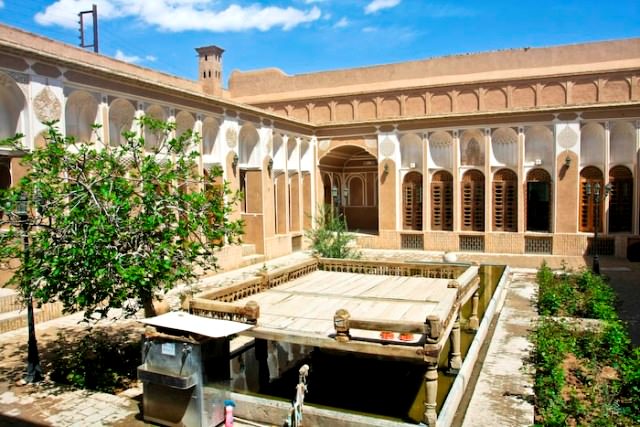
Yazd water museum was set up in 2000 in the wake of the first international conference on Qanat in Yazd
It is believed that the Qanat system is the key to the existence of Yazd; a civilization survived such long. This system has successfully worked for millennia not only by supplying the people with water but also by bringing peace for them! To develop and maintain the tunnels, people of all the communities near the Qanat need to cooperate. Any war or unrest between them could destroy the infrastructures and then destroy the life of them all. This fact becomes more interesting if you know Former Iranian president, Mohammad Khatami, who introduced the idea of Dialogue Among Civilizations as a response to Samuel P. Huntington’s theory of a Clash of Civilizations, is from Ardakan of Yazd province.
By Reza Seyyedain

